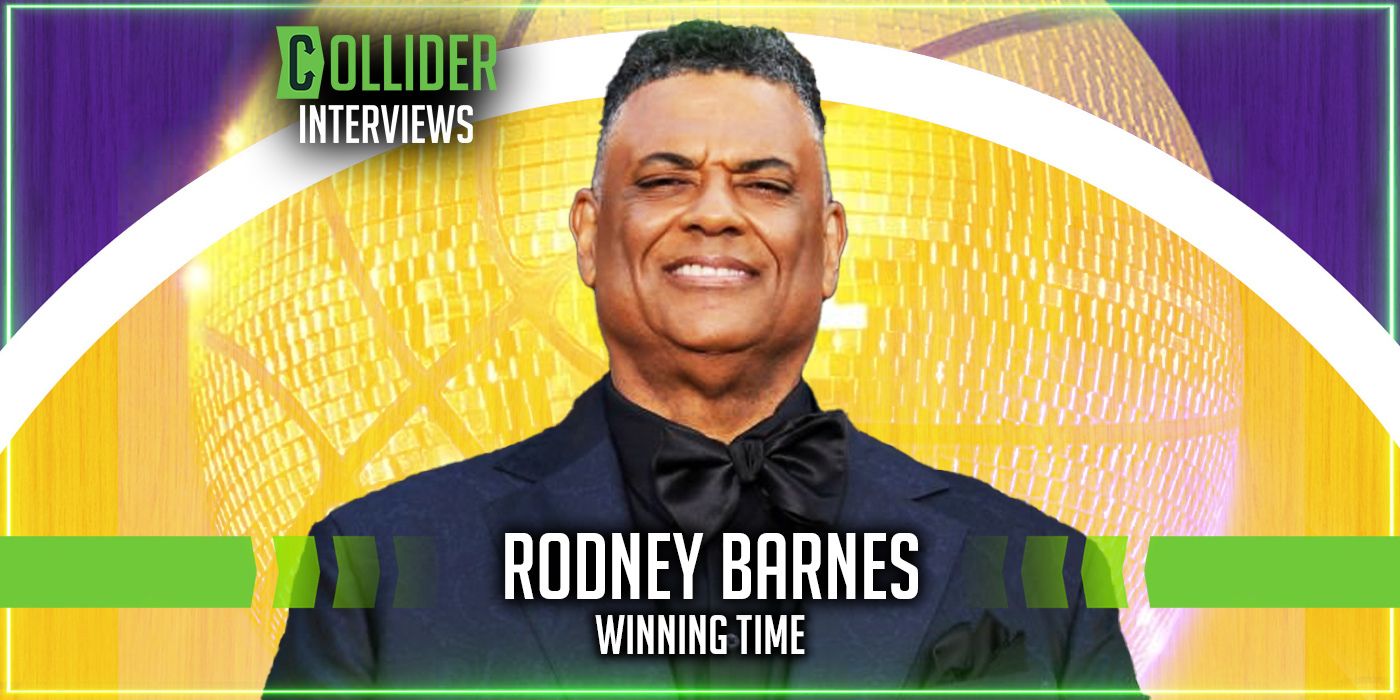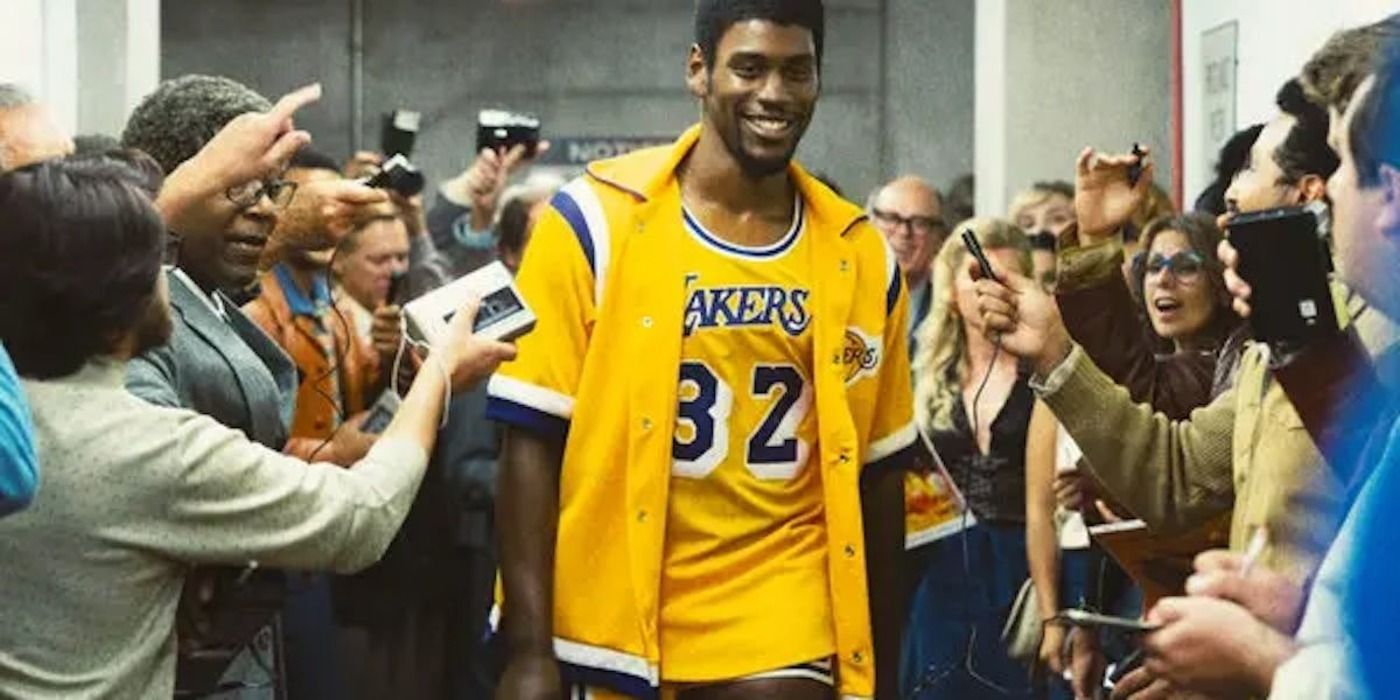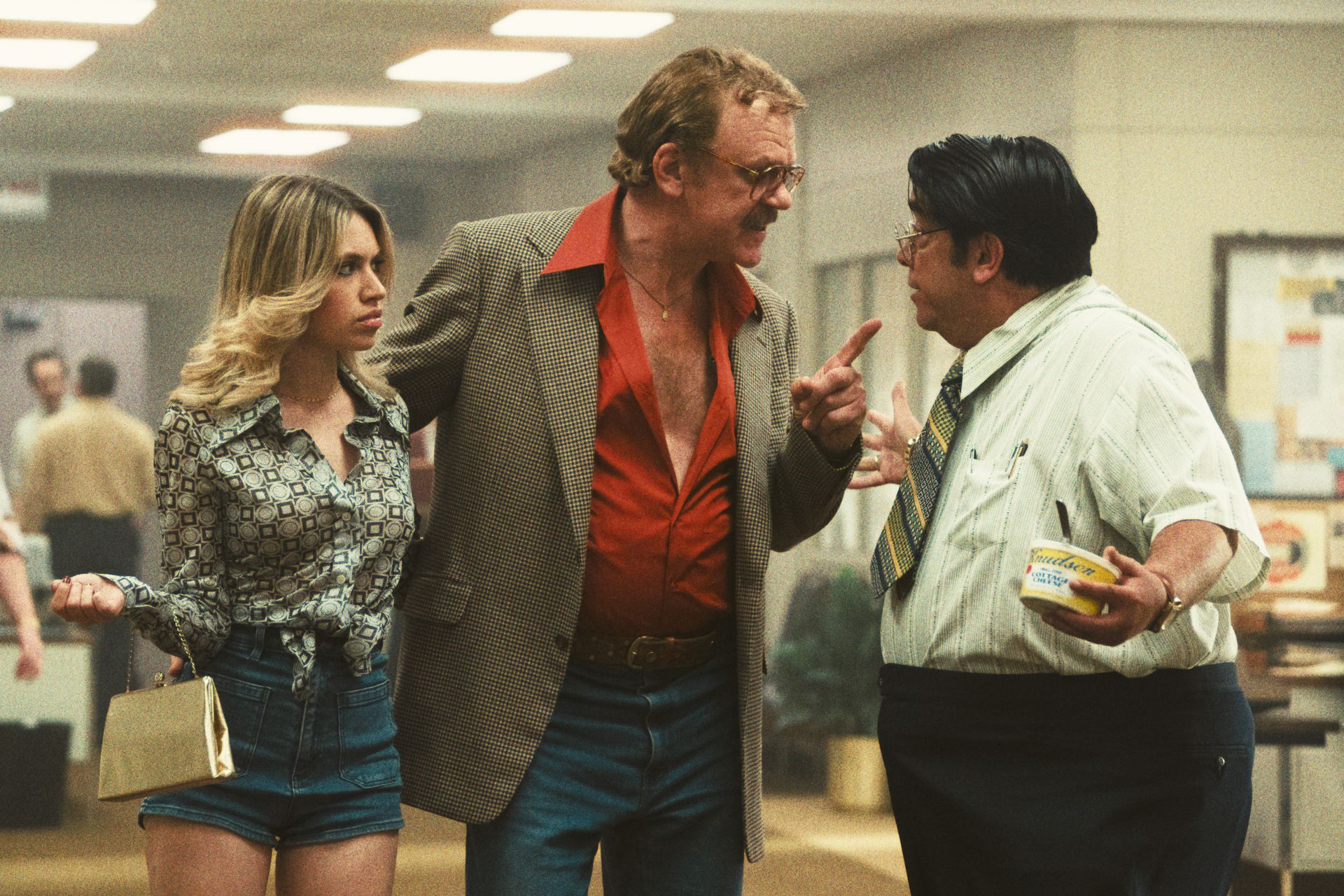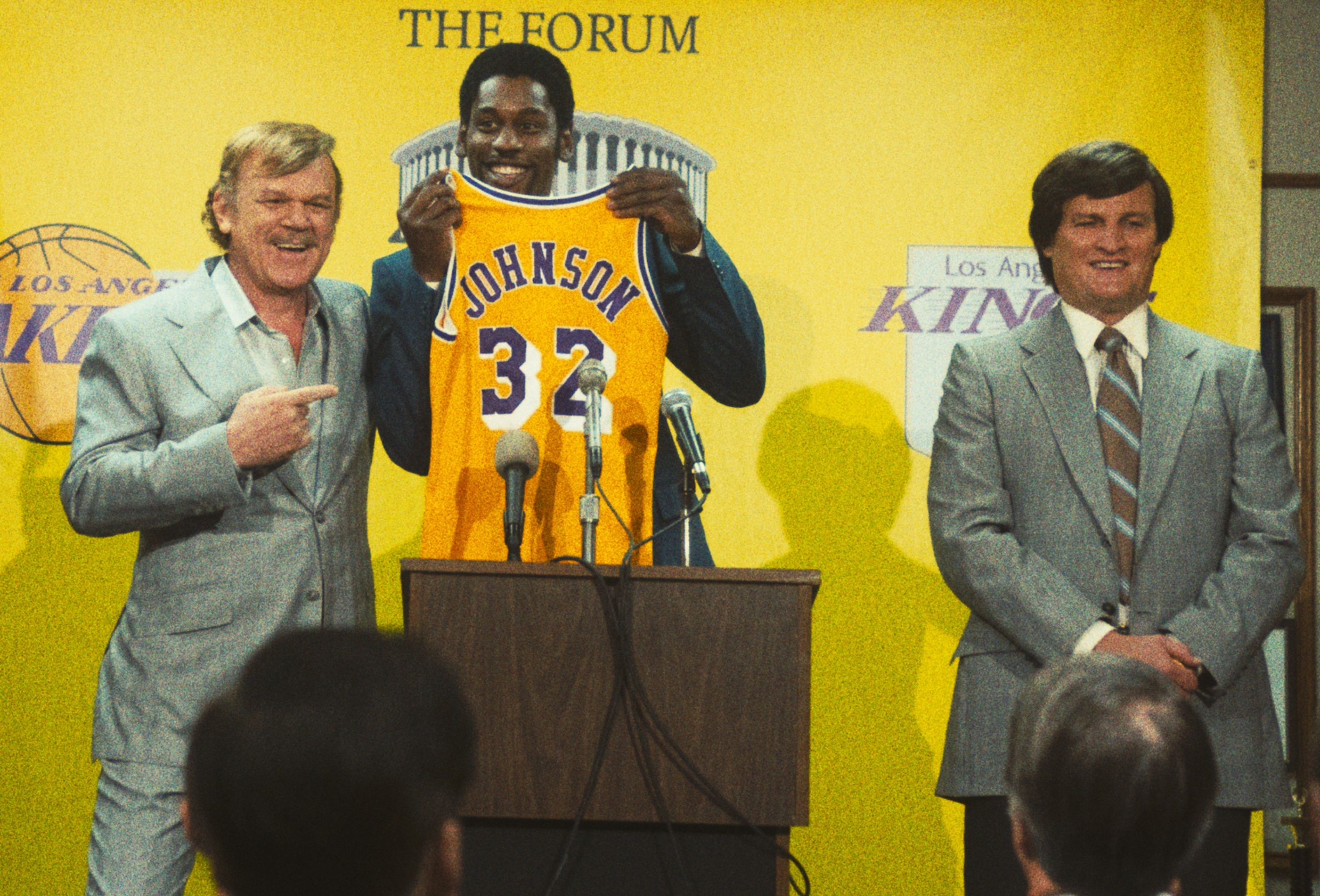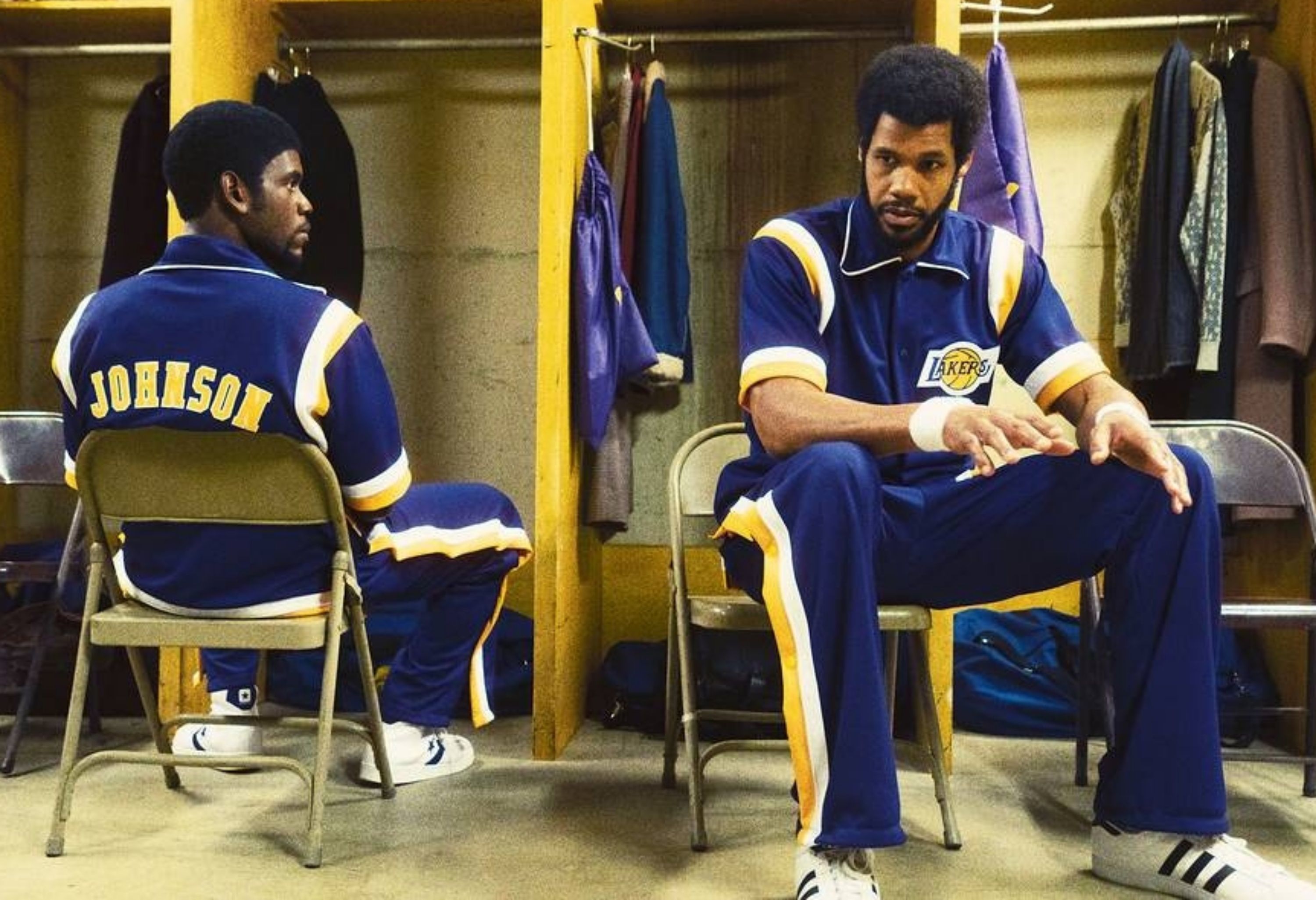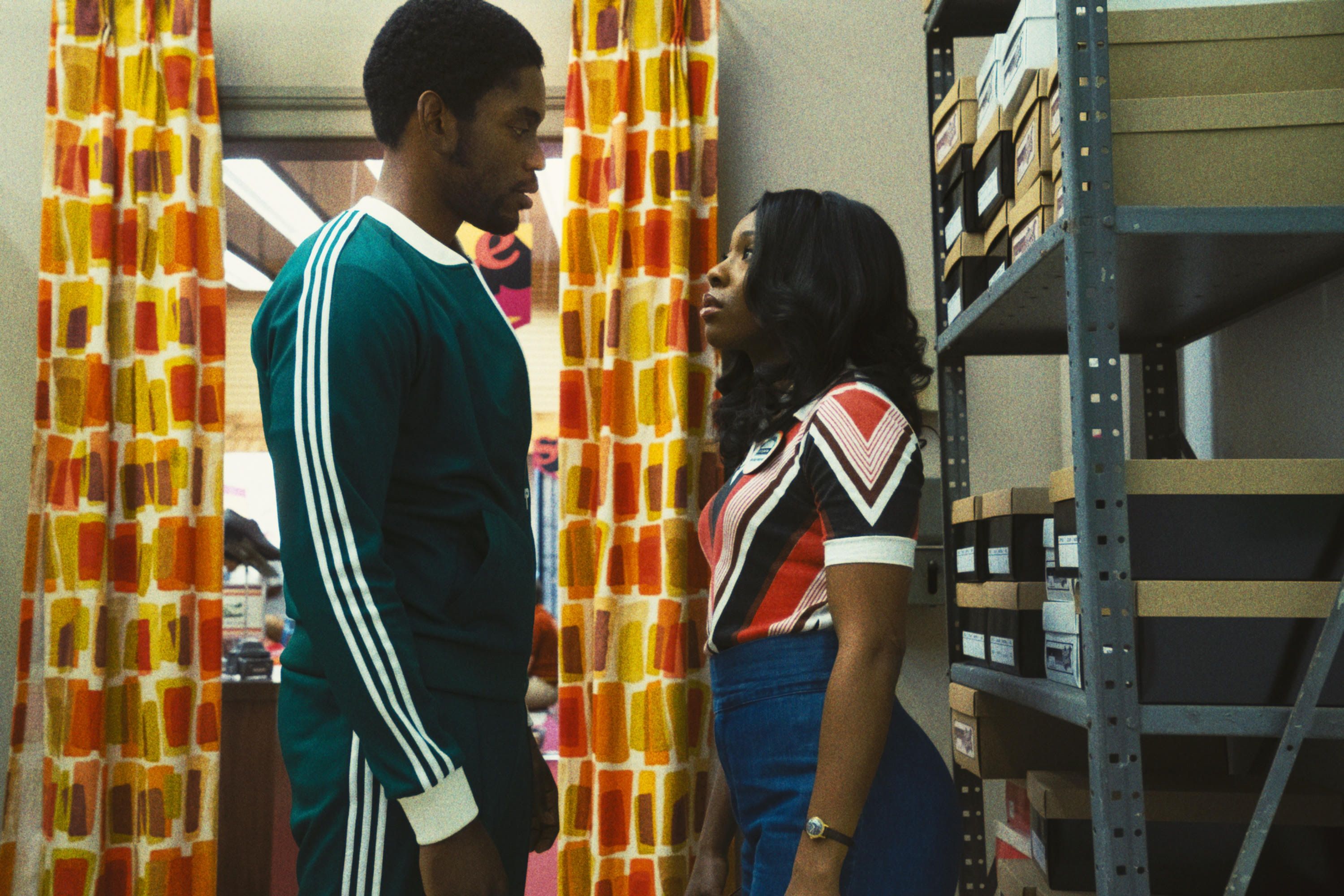From co-creators Max Borenstein and Jim Hecht, and with a pilot directed by executive producer Adam McKay, the 10-episode HBO series Winning Time: The Rise of the Lakers Dynasty (which has already been picked up for a second season) follows the intertwining professional and personal lives of the 1980s Los Angeles Lakers. What became one of sports’ most revered and dominant dynasties started with a vision set in motion when Dr. Jerry Buss (John C. Reilly) took over and reinvigorated the franchise, bringing together the flashy characters and the unsung heroes that forever changed the NBA and what the fans grew to expect from basketball.
During this 1-on-1 interview with Collider, executive producer/writer Rodney Barnes talked about how he got involved with the series, the challenge of laying out the story they wanted to tell, figuring out when to have the different characters talk directly to the camera, how they approached shooting the basketball scenes, the plan for future seasons, and who he’d love to screen the series for. He also talked about developing Things That Make White People Uncomfortable for HBO and why that’s an important project for sparking conversation.
Collider: How did this all come about for you? It seems like a no-brainer to want to tell this story, but it also seems completely overwhelming to try to take something like this on. What made you want to sign on?
RODNEY BARNES: When (showrunner) Max Borenstein got the job, he reached out to me and asked me if I was interested in partnering with him because, like you said, this is a massive undertaking and there’s a lot of story to tell. Fortunately, I’m from the era and I remember a lot that went into not just the basketball, but society at large. It just made for a really great pairing, in being able to capture the era and everything else involved.
How hard was it to figure out how to lay out all the puzzle pieces? Because you have the sport and the games, but you have all of these personal relationships and family dynamics, and everything going on around all of them, in this time period. Where do you even start with all of that?
BARNES: If you could see our whiteboards, you would think they were the ramblings of mad men. Narrative real estate was something that we wrestled with a lot, over the course of these 10 episodes, but it worked like a tree. You had Dr. Buss on one side, and his family that went under that, and then the management that went under that. And then, on the other side, you had Magic Johnson, and the players that went under that, and their lives that went under that. And so, once you start to separate those into manageable parts, it’s not as difficult. It’s more of a rhythmic thing. It’s like, after a while and watching the episodes, you fall into a rhythm of understanding what’s happening, and that’s purposeful from the pilot on. The great Adam McKay set a tone for us that mirrored our scripts, and we kept it going. It was always a difficult choice of what stories to tell, what stories not to tell, and making sure everyone got some love.
How did you figure out when to have them talking to the camera? It’s such an interesting device. How did you decide when to use it, when to pull back from it, and how much was too much?
BARNES: A weird thing was, at a certain point after the pilot, it became almost instinctual. There would be times we would write it in the script and it wouldn’t work, but there were also times when the actor would say, “You know what? I want to say that to camera,” and it would work. It was something that just came out from an improv place, but it’s always there to heighten character. It’s always there to give you a little bit of information or subtext under what’s going on inside of the character that’s outside of the scene. Even if they’re talking about the scene, they’re talking about themselves. First, they’re talking to the character in front of them, then they move to talk to the audience, and it immediately grabs you and brings you in. It was planned, but then it became something that took on a life of its own.
It also seems that you have to have a certain level of passion and love to tackle a subject like this. Putting aside everything you already knew or thought you knew about this story and these individuals, what most surprised you or stood out to you about what you learned from doing this?
BARNES: The human stuff and how everyone that was involved, whether they were black or white, women or men, all had something that drove them to this place where they felt like basketball would be the key to self-actualization. Everybody was carrying some type of stuff along with him, whether it was father-son or daughter-father, something that went beyond basketball. The human experience, to me, was actually more intriguing than the basketball itself because I’ve been around unfortunately long enough to see some bad movies and TV shows about sports, and where they relegated the players to a one-dimensional idea of who they were. Here, we had the opportunity to add that human element to it, that took them beyond the game to where you really got to know the people.
I’ve said it before, if you look at Magic Johnson coming from Lansing, Michigan, Kareem Abdul-Jabbar coming from Harlem, and Spencer Haywood coming from the Deep South, that’s three different ways of looking at America. The beauty of a team is oftentimes you have people coming from all over, coming together for a common goal, and they’re different in their belief systems, their religions, their points of views, but they become this collective one.
There’s something beautiful in that. That speaks to society at large and what the potential is for all of us. If you look at this show, that happens with men, it happens with women, it happens with everyone. The entire Laker organization comes together in the name of winning. Dr. Buss is the head because he’s the owner, but everyone has his passion for this thing, and they really, really, really wanna win. They create a family that does that and they create this dynasty. To me, it’s just really cool. It’s an honor to be able to tell those types of stories.
It’s interesting because you do take us beyond the game, but you also take us into the game. Every movie and TV show that covers sports covers the shooting of the game differently, so what was that like to figure out and to see?
BARNES: The thing for us, we knew going in, we could never do basketball better than basketball, and we didn’t want to do really crappy basketball. So what we did was capture iconic moments, like Kareem’s famous sky hook, or Magic Johnson’s passing, or Michael Cooper’s defense. We would capture moments, character-wise to who they were within the game itself, but we’re still telling the story going up to that part that had nothing to do with basketball. A lot of shows tell a story, then they stop to play basketball, and then they go back to telling a story, and the story is about whether they won or lost. Our story is continuing through the game. You see the coaches bickering on the sidelines, and you see the players arguing within the game. The thing that’s happening in the story in the episode is happening on the basketball court as well, so you don’t feel like you’re judging the basketball just on basketball. You’re still experiencing the narrative as it is.
You made this series without the direct involvement of the Lakers or the Buss family. Since you didn’t have any of them to answer to in the literal sense, what did you use to guide yourself when it came to honoring them? Does it just come from the heart and from a gut feeling?
BARNES: From information. Just about everybody, except Dr. Buss, wrote a book, so they gave us information about who they were and how they felt about things. A lot of articles were written. We did a massive amount of research about who these people were and read interviews that they had done. We took all of that stuff. And then, to your question, there is this human thing that you have to do when you’re dramatizing the thing, where you put yourself empathetically in that person’s shoes, and you say, “What must it have been like to be in this situation?” And once you go there with all the information, you create a thing, and you continue to hone that down until you feel like it’s the most authentic representation of that experience without being disparaging to that person. We’re all fans of the Lakers, we all love this game, we love this organization. I think it’s all about reverence. It’s all about taking all of what we have and all of who we are, and putting that into a scene and into these characters, and telling the best story we can.
You really have a wide variety of characters, from the characters that everybody knows, like Magic and Kareem, to the characters that most people probably don’t know, like Jerry Buss’ mother or Claire Rothman.
BARNES: And certainly for Dr. Buss’ mom, in reality, she actually passed two years before our story begins, but we didn’t want to portray him as just the playboy. We wanted to give him dimensions, as a character. Within our show, most of his interactions with other characters is as a superior. He’s everybody’s boss. But you’re not the boss of your mom, so it puts him in a place where he has to be more than just one thing. He’s not just the playboy, not just the owner who’s yelling at people and trying to find money, but there’s a human being in there as well. And who can bring that out, more so than his mother? We did that with as many characters as we possibly could, in finding that human stuff to put into their stories and put into their characters. That way, when you get to the basketball, it feels like it’s just another part of the experience, but there’s so many other experiences to go with it.
What is the plan for more seasons?
BARNES: We would like to continue to go as long as folks want it and as long as our wonderful partners at HBO want us to do it. We love the world. There’s a lot of story left to tell. We’ve met Larry Bird, but we still haven’t had that Godzilla versus King Kong moment of these two guys coming together, or the Celtics and Lakers who are the same thing because they had a history before Larry Bird and Magic Johnson. There’s a lot of stuff to tell, both on the basketball court and with a lot of new characters that would be coming in because there are basketball changes. Every season, we’d have new players coming in. You have different ownership. We still have a story that hasn’t been completely concluded, as far as who’s gonna be the coach, because we’re still going through that carousel as well. There are a lot of stories still to tell, and I hope we get an opportunity to tell them.
I read that you also have another project in development at HBO, with Things That Make White People Uncomfortable, which we all know that just that title alone will make some white people uncomfortable.
BARNES: True.
What are you excited about with that project? It seems like the perfect time to make that show.
BARNES: It is the perfect time to make white people uncomfortable. I don’t know if there has ever been that time of human history, but if there has been, this would be that time.
And as a white person, I am for that.
BARNES: A little discomfort is good for our lives.
It leads to good conversation.
BARNES: It does. And psychological evolution. We get to be closer as human beings. It’s based on a book by Michael Bennett, who’s a former football player. I adapted it as an anthology series, based upon stories and scenarios of his life that thematically play into stories intended to make white people uncomfortable. It’s really more of an honest conversation about race and where we are as a society. It’s cautionary tales. Some of them are funny. Some of them are very dramatic. Some of them take place over the course of history. But the intention isn’t just to make you uncomfortable for the sake of being uncomfortable. It’s to hopefully bridge the divide in this polarized society, so that we can come together and hopefully make things better for all.
Growth comes out of feeling uncomfortable because you want to figure out why you feel uncomfortable, so you evaluate yourself.
BARNES: Exactly. And in comfort, you never do that. If you’re really comfortable, you say, “Oh, everything’s great.” But when you become uncomfortable about a subject, it sometimes forces you to do that self-reflection and to look within and say, “Why am I uncomfortable about this?,” and hopefully do the necessary work.
With all of the real-life people that are being portrayed in Winning Time, who would you be most interested in screening it for, so that you can see their reaction?
BARNES: That’s a great question. I would say Pat Riley because the story we tell with him doesn’t start with the cool guy. We don’t tell the story with the slicked-back hair and the Armani suits. We go on the full journey. I would be curious to see what he would think about that period in his evolution over the arc of our show. You start to root for him in a different kind of way. That was another surprise for me. I didn’t know he had gone through all of that. I just figured he was hired to be the coach. But no, it was a real arduous journey that’s different than every other coach. Jack McKinney was hired to be there, and Westhead was his number two. You figure, “Okay, they must have gotten fired and another coach came in.” No. This guy had to work his way in, be a commentator, and then work his way through to get to a certain place. It’s an underdog story, and it makes me respect him even more.
Winning Time airs on Sunday nights on HBO and is available to stream at HBO Max.

